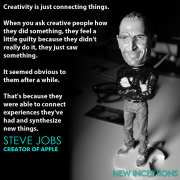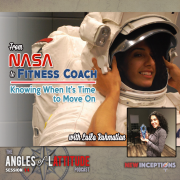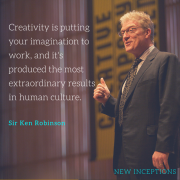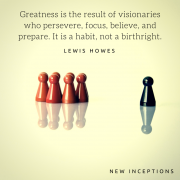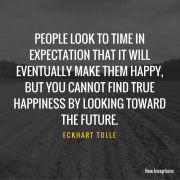AoL 015: The Legal Basis for a Moral Constitution with Jenna Ellis
Today’s guest, Jenna Ellis. A new author who got her first book, The Legal Basis for A Moral Constitution (Amazon), into Barnes and Noble.
Have you ever been so passionate about something that it compelled you take action in a way that you’ve never done before? Perhaps it was something that you thought was unfair. Or perhaps you had a sudden interest in a particular subject and you just thought it was time to take that certain action.
That describes the reason started writing her book.
You might remember back in June of 2015 that gay couples were given the ability to legally marry. At face value, that might not seem like a bad thing. But the way that it was legalized, many, including Jenna (who’s a constitutional lawyer), believe was very questionable.
Furthermore, in recent years, we’ve seen an uptick in judgements that many would deem morally questionable.
Jenna’s book “offers insight into the legal reasons our nation must be compelled to return to universally objective moral judgments from a higher source than the collective government. Morality is not the subjective, changing whim of the majority, or more specifically, the majority of nine Supreme Court Justices.”
In other words, she explores our Founding Documents and their true initial intent and discusses why we can’t rely on simple interpretation of those laws.
As creators, this is important information to know. We need to know what the real law is and if our backs are being covered by those who are in power. Because, as it currently stands, we could find ourselves, one day, in a situation where discussing a certain topic or doing a certain act might be more than just taboo – it might be labeled illegal simply based on 5 Justice’s interpretation of a law.
So, if you’re curious as to what got Jenna started on her path of creativity and how you might be able to get a publisher to get your first book to the masses, then this is a great discussion. While we don’t spend much time talking about the book itself, I think you’ll be able to see just how passionate she is about her work. In this regard, I believe that we all can learn something from her.
IN THIS EPISODE, YOU’LL LEARN:
- How Jenna knew she was always going to be a lawyer.
- What she got out of her years in journalism school that helped her write her book.
- When she knew it was time to write a book.
- How she made her book accessible to people who don’t speak or read legalese.
- What she believes is the future of Conservatism and the use of Natural Law.
- How she was able to get her first book into Barnes and Noble.
- Why she’s not afraid of traditional public speaking.
- Why she believes it’s important to teach Millennials and future generations what really matters in life and why it’s important to care.
- …and MUCH more.
Right click here and save-as to download this episode to your computer.
ITEMS and PEOPLE MENTIONED IN THIS EPISODE:
- 6 Key Methods of Dealing with Frustrating People
- Purdue Entrepreneurship Department
- Richmond University Law School
- Virginia Commonwealth University’s da Vinci Center – Ken Kahn
- Jenna on LinkedIn
- Wall Builders
- Wallace Wattles
- Thomas Nelson Self Publishing Division: WestBow Press
- Michael Farris – Home School Legal Defense Association
- Alliance Defending Freedom
- Jay Sekulow – ACLJ
- Summit Ministries
- Teenpact
- William Lane Craig
- Audible.com– If you don’t have time to read all your books, this is a great alternative! 30 Day Free Trial + 1 Free Audio book Download
- Fizzle – Our go to community for building online businesses. First month is free!
SHOW NOTE EXTRAS:
In this episode’s show note extras, I thought I’d add some items that I’ve found useful when it comes to some of the topics that Jenna and I discussed.
First, we have Mechanic to Millionaire. Dave MacArthur is the founder of this site and community. While he’s a Isagenix distributor, a lot of what he talks about transfers to other businesses quite well. Why? Because they teach about Natural Laws. I was really thrilled to hear his conversation with Solopreneur Hour’s Host, Michael O’Neal.
Next up, we have a video that explains why the American Dream has collapsed. Again, this has nothing directly related with what Jenna talks about in her book. However, I think it’s important to understand why so many of us are feeling a need to be creators at this time in history.
The real political fight isn’t about Democrats vs Republicans. They both work for lobbyists. Big government means big regulation and an unfair playing field for us, the people. If you’re a creator serious about making a difference, you should be interested in those in government who care about us as individuals. Not those who are pandering to the masses and never returning on their promises. Otherwise we can only make a difference that they’ll allow us to make.
I think this video does a great job explaining what has made America great and what Freedom is all about:
Overview of America
If you found that interesting, you might also like this:
Overview of America, Part 2:
And, finally, I ran across this video, not too long ago. I think it puts in perspective how much the price was and can be if we let extremist groups like the Nazis ever get in power again. This is why it’s important to be able to recognize when a person or a group of people is being manipulated to believe a certain way OR when a group of people are being alienated by the rest of society.
The Nazi’s got away with it until finally the rest of the world had enough.
The Fallen of World War II from Neil Halloran on Vimeo.
Thanks for Listening!
Thanks so much for joining us again this week. Have some feedback you’d like to share? Leave a note in the comment section below!
If you enjoyed this episode, please share it using the social media buttons you see at the top of the post.
Also, please leave an honest review for The AoL Podcast on iTunes! Ratings and reviews are extremely helpful and greatly appreciated! They do matter in the rankings of the show, and we read each and every one of them.
If you have any questions feel free to email them over via the email mentioned in the show or by our contact form.
And finally, don’t forget to subscribe to the show on iTunes, Stitcher, and/or Soundcloud. It’s absolutely free to do so.
A huge thank-you to you guys for joining us!
Cheers!


